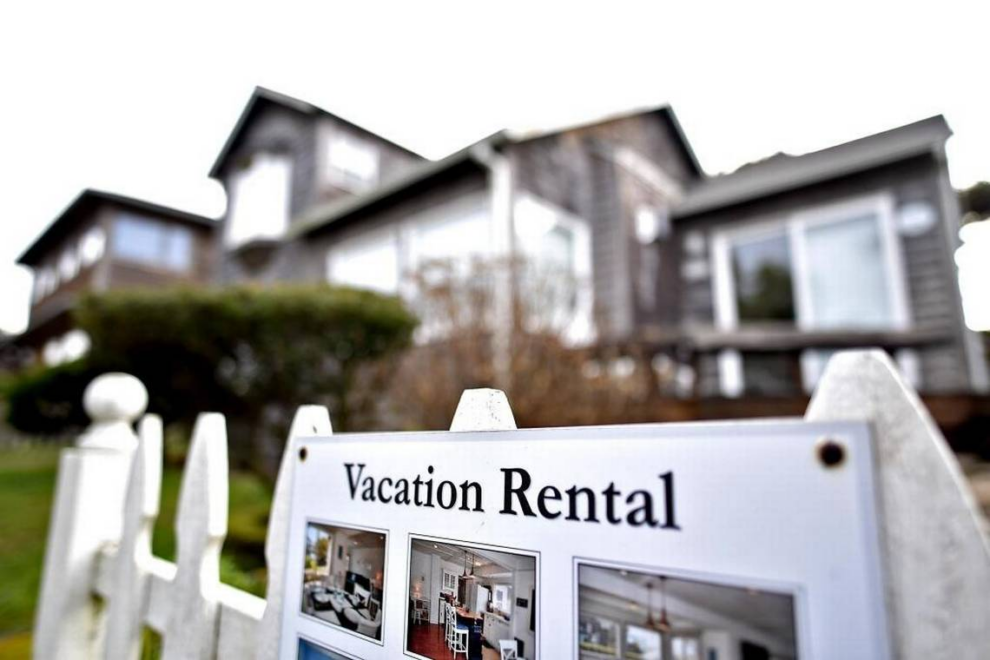A group representing Kentucky cities and tourism officials has sued Airbnb in state court alleging the short-term rental giant has not paid many local cities hotel and motel taxes. In 2022, the Kentucky General Assembly passed a law making it clear short-term rental operators must pay local hotel taxes. A previous loophole made it easier for short-term rental companies to circumvent the law. The law took effect Jan. 1.
Yet, many Kentucky cities and tourism groups, which receive funding from local hotel and motel taxes, allege in a Dec. 1 lawsuit filed in Franklin Circuit Court that Airbnb has failed to comply with the law. The Kentucky League of Cities and the Kentucky Travel Industry Association also allege other short-term rental operators have paid those local hotel and motel taxes but Airbnb has not.
The lawsuit alleges Airbnb says on its website that it is charging and collecting local hotel taxes.
“Airbnb therein also acknowledges that ‘it is required by law to collect and remit local taxes on behalf of hosts, Airbnb calculates these taxes and collects them from guests at the time of booking. Airbnb then remits collected taxes to the applicable tax authority on the hosts’ behalf,’” the lawsuit said.
Airbnb did not immediately respond to a request for comment on the lawsuit. It has waged other legal battles in other jurisdictions including Palm Beach, Florida, and other popular tourist towns over collecting and remitting hotel taxes. Meanwhile, brick-and-mortar hotels and motels pay local hotel taxes. Hotel groups have long argued short-term rental operators have an unfair business advantage if they don’t pay state and local hotel taxes.
A study conducted earlier this year to determine if the Finance and Administration Cabinet and the state Department of Revenue could collect local taxes from short-term rental operators and then remit those taxes to local jurisdictions found it would be too costly and was not recommended.
The Oct. 31 report found it would cost the Department of Revenue at least $2.4 million to develop systems to collect and remit those taxes. The study was ordered by the General Assembly during the 2023 legislative session.
“There are no legal or technological barriers prohibiting online facilitators from complying with their collection and reporting responsibilities to Kentucky’s local transient jurisdictions,” the report found.
SOME CITIES, INCLUDING LEXINGTON, RECEIVE LOCAL AIRBNB TAXES
Local governments are allowed to levy a local hotel tax. How much tax a city or county or merged government can tax depends on the city. Lexington-Fayette County has one of the highest local taxes in the state at 4%. That’s because a portion of those local hotel and motel taxes pays off bonds for the $310 million Central Bank Center renovation and expansion.
Lexington-Fayette Urban County Government entered into a separate agreement with Airbnb in 2018 and later other short-term rental operators for local hotel taxes. It was one of the first cities to have such an agreement. It is not part of the lawsuit because of its separate agreement with Airbnb.
Yet, Lexington is still struggling to police short-term rental properties. A new ordinance requires short-term rental operators to receive the necessary city permits and to register by Jan. 11. As of Nov. 28, only 63 short-term rental operators had applied for a special license. The city believes there are between 800 and 1,200 short-term rental units in the city. Operators who are caught without proper city permits face fines of up to $500 a day.
Cities without separate agreements with Airbnb have not received their taxes, according to the lawsuit. bHank Phillips, president and CEO of the Kentucky Travel Industry Association, said hotel or transient room taxes are sometimes the only funding sources for local tourism commissions.
“The transient room tax is vital in producing the huge benefits that tourism provides to Kentucky communities, “Phillips said. “ … It’s the marketing and promotion those organizations do that attracts visitors and it’s the money spent by those visitors that enhances local economies, generates jobs, results in funds for local and state government services and the many other benefits that tourism provides to our communities.“
Phillips said there is no way for the industry to know how many short-term rental operators are in Kentucky. There are some estimates that it could be as many as 11,000. Many of those are likely listed on Airbnb, Phillips said.
Berea has identified at least 16 Airbnb rentals. The local hotel and motel tax is 3% of the cost of the stay, according to the lawsuit. Elizabethtown has identified 39 Airbnb rentals. Its tax is also 3%.
Murray, in Western Kentucky, has identified 17 Airbnb in its city limits. In addition to the 3% sales tax, a local ordinance also says failure to pay those local hotel taxes will also face a “mandatory interest at 7% per annum and a penalty of .5% of the amount of the unpaid tax for each month or fraction of a month it remains unpaid.”
The lawsuit asks a judge to order Airbnb to comply with the state law and remit the taxes. It’s not known how much taxes are owed.
Source: Lexington Herald Leader
















